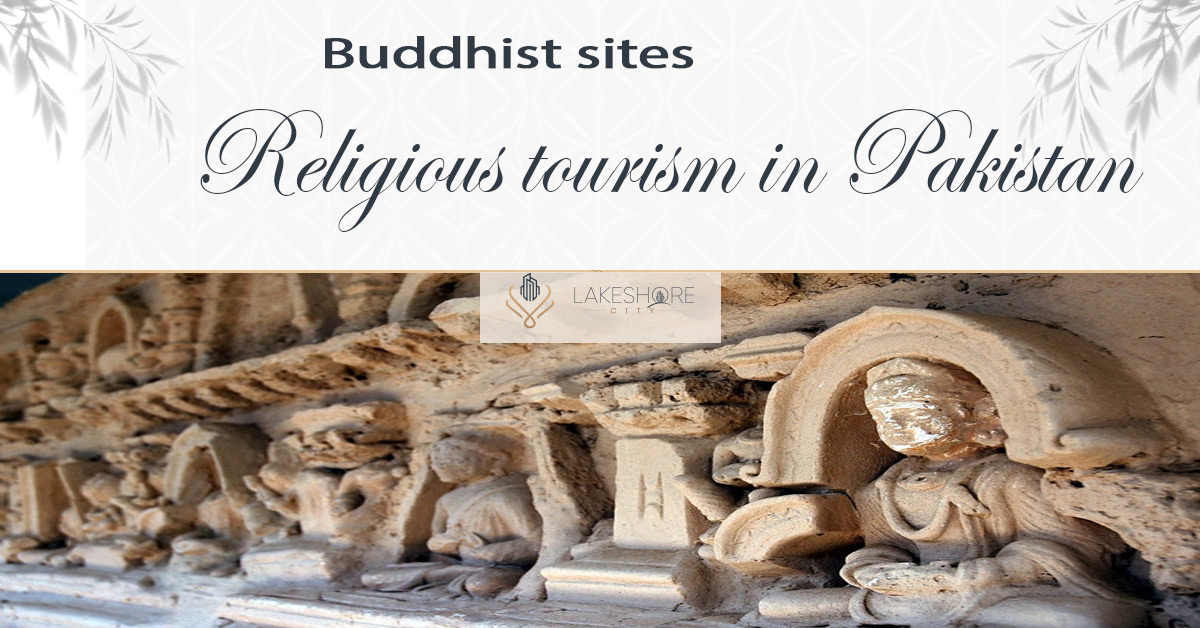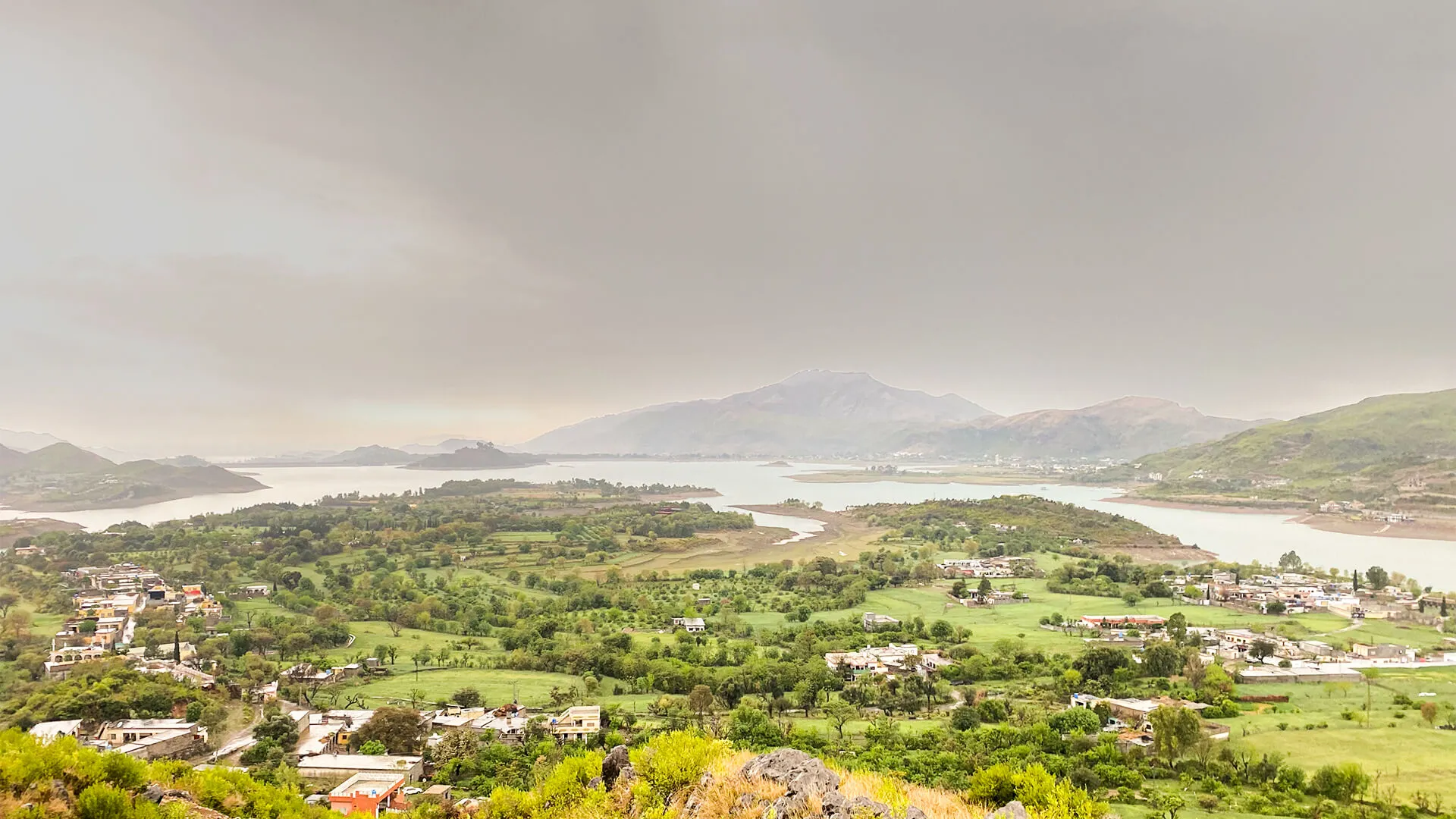Also known as special interest tourism, religious tourism is a significant segment of the travel and tourism sector. It usually involves people who visit places revered by members of particular faiths.
Because religious sites have cultural, historical, and religious significance, nonreligious visitors also visit them in addition to pilgrims.
The world has become a global village in this unavoidable information- and technology-driven age, but Pakistan excels in many areas and has a wealth of historical and cultural legacy.
Despite being a Muslim state, Pakistan has managed to preserve and conserve the majority of other religions’ holy places, structures, and artifacts, including Buddhism.
Although the Buddha was born in India, Buddhism was most successful in Pakistan. Projecting Pakistan as a haven of peace and a storehouse of rich Buddhist history is imperative.
Pakistan’s engagement in its Buddhist legacy has gotten far less attention despite possessing more Buddhist sacred sites than the land of Lord Buddha, in contrast to India’s capture of Buddhism’s multimillion-dollar tourism business and brand as the home of Lord Buddha.
The three-month rainy season retreat, or “Vassa,” that Chief Monk of Thailand Arayawang wrapped up in Taxila with a message of “peace extended to the world from the land of Pakistan,” specifically the thirty-two Buddhist countries.
He conveyed his appreciation to Pakistan for arranging his visit to Taxila. The friendship and interfaith harmony between the Buddhists of Pakistan and Thailand would strengthen due to this visit.
He urged citizens of Buddhist nations to come and see this fantastic country, which was once the epicenter of a great Buddhist civilization.
The rain retreat ended with a Kathina Ceremony, also known as the “offering of robes and other gifts.”
This marks the start of a new era in religious tourism, as Pakistan has never had as many Buddhist tourists as it does now.
The nation will emerge as the primary location for Buddhist religious tourism shortly. Given its rich history and legacy, Pakistan has enormous unrealized potential for international religious tourism—that is if sufficient security is offered to visitors from other countries.
Buddhist Sites in Pakistan: The Mauryan king Ashoka introduced Buddhism to Pakistan around 2,300 years ago.
It has had a significant role in Pakistan’s history. It has been a part of primarily Buddhist domains, including the Indo-Greek dynasty, the Kushan authority, Ashoka’s Maurya authority, and the Pala authority.
The Buddhist Ruins of Takht-i-Bahi, Taxila, and the Remains at Sahr-i-Ahlool are the holiest Buddhist sacred sites.
These sites can promote the nation as the most sought-after Buddhist travel destination globally. Hundreds of locations can be found all around Pakistan.
The first destination for foreign visitors, especially Buddhists, is Taxila. It has supported Buddhist education, architecture, and sculpture.
Around Taxila, more than fifty significant archaeological sites are dispersed within a 30-kilometer radius. The Buddhist past of Pakistan is filled with folklore and mythology.
The region has a long history of cultural significance, spanning from the writing and recitation of the most significant Hindu epic, the Mahabharata, in the early historical period in the Gandhara region, to the region’s prominence as the ancient center of Buddhist scholarship.
By paying careful attention to Buddhist landmarks, Pakistan can become more visible to foreign tourists and revitalize the Buddhist heritage trail that runs through the Gandhara region.
Principal Buddhist regions: Gilgit-Baltistan: Buddhism arrived in Gilgit in the late 7th century, and up until the 15th century, most people there practiced Buddhism. Afterward, the majority of people converted to the Bon religion.
Among its archaeological sites are Sacred Rock in the Hunza Valley and Manthal Buddha Rock, a rock relief of the Buddha perched over a settlement close to Skardu.Gandhara: Most of the population in Gandhara, now the province of Southern KP, was Buddhist.
The Swat Valley is home to numerous Buddhist archaeological sites. Kumâralabdha, the Taxila Buddhist scholar, shared characteristics with Aryadeva, Avagho, and Nagarjuna.
Uddiyana: It is believed that the Buddhist teacher Padmasambhava was born in a village in Lower Dir District, a division of Oddiyana, not far from the modern town of Chakdara.
In Tibet, the Padmasambhava is called Guru Rinpoche, and he brought Vajrayana Buddhism to Tibet.
Religious tourism’s effects on Pakistan’s economy: Religious travel has always been a part of the country’s culture.
They play a significant role in the local economy and are essential to local marketing where they are hosted. In Pakistan, religious tourism offers the chance for Muslims and non-Muslims to go on pilgrimages and visits to holy places together.
Three major religions are practiced in Pakistan that are well-known worldwide: Buddhism, Sikhism, and Islam.
The GDP of Pakistan would expand by $1.5 billion if foreign tourists were permitted at the same rate as the rest of South Asia, according to analysts.
A little over 4 million employment were created in 2019 thanks to tourism, which accounted for 5.9% of the nation’s GDP.
Providing sufficient amenities to Buddhist tourists can generate over one million dollars in revenue for the government of Pakistan.
Beyond image repair, religious tourism can significantly boost Pakistan’s economy by promoting the Muslim, Hindu, Buddhist, and Sikh sites that are present in the nation.
Pakistani officials have taken several actions to advance and enhance tourism.
In terms of tourism, Pakistan’s economy has been drab. More specific policies and alluring trip packages are needed for international tourists visiting Buddhist sites in Takht-i-Bahi, Taxila, Peshawar, and Swat, especially those from Japan, China, Singapore, and South Korea.
—The author is still connected to ISPR and the Institute for Strategic Studies.
Our Featured Article:
Read More: Unveiling the Ancient Treasures of Taxila and Gandhara
Don’t miss the chance to invest with Lakeshore! Secure your investment today by investing your financial investment with Lakeshore in the following available options like Lakeshore City, Lakeshore Club, and Lakeshore Farms.
For More updates, please Contact +92 335 7775253 or visit our website https://lakeshorecity.com/
Lakeshore City is the upcoming elite lifestyle at Khanpur Dam. Offering no parallel amenities for the members and owners of distinguished farmhouses.
Become Part of Luxurious Lifestyle
Contact: 0335 7775253



